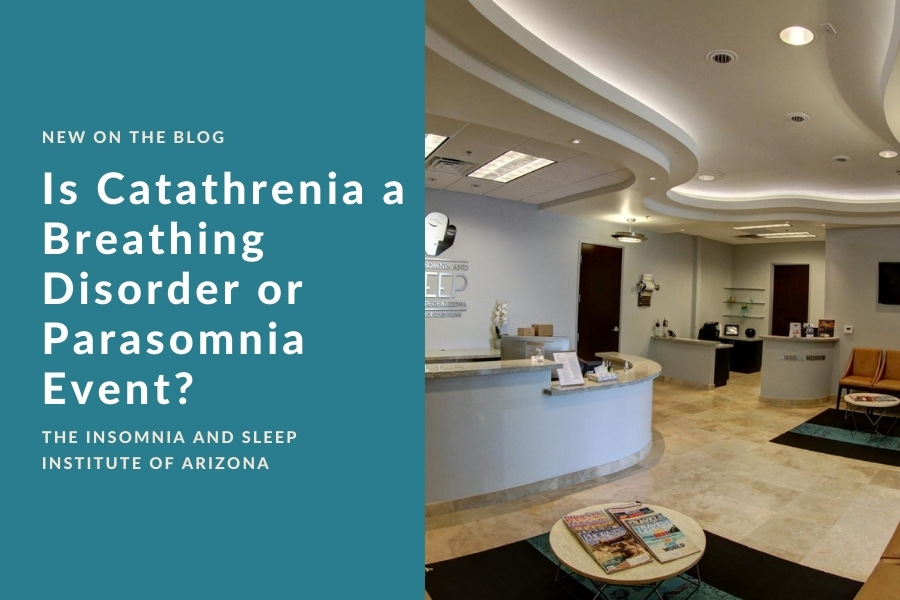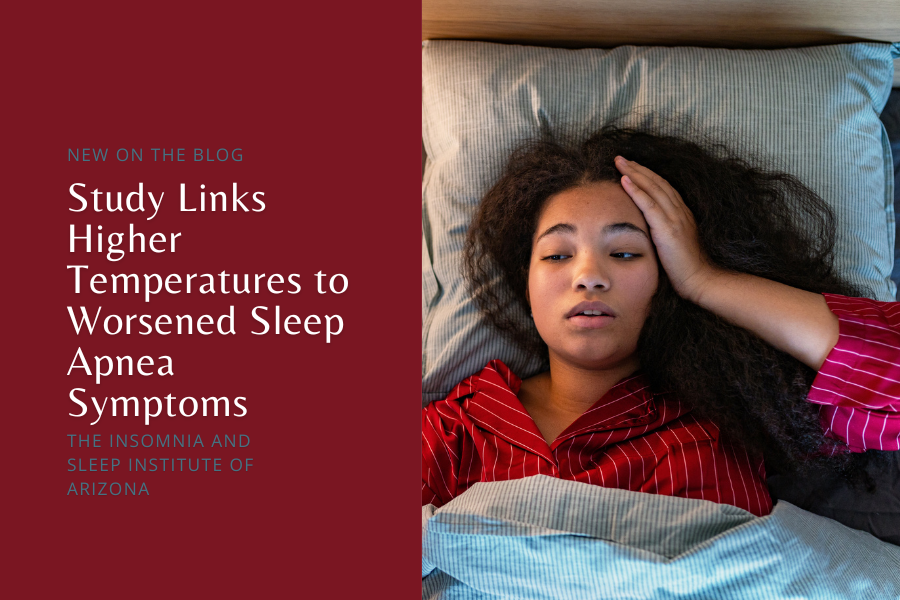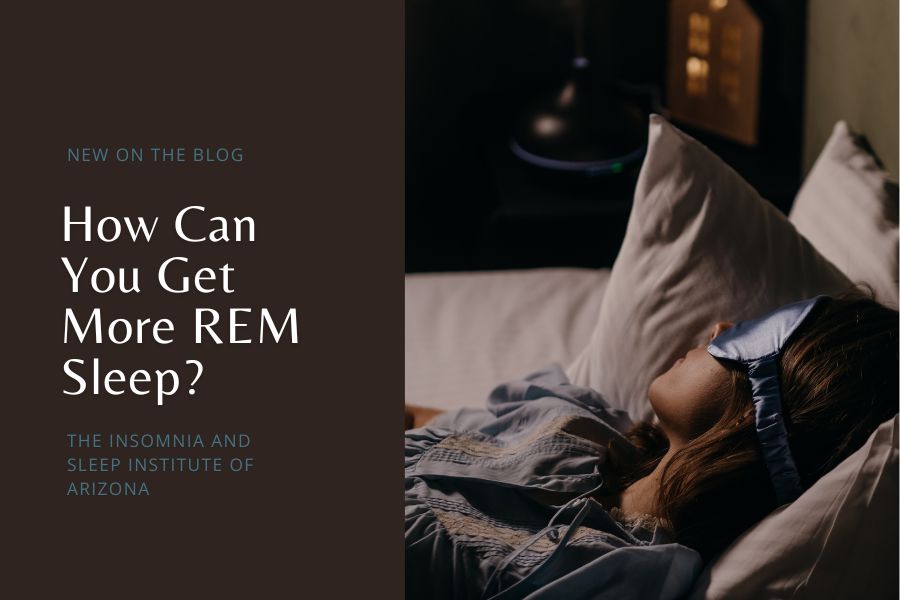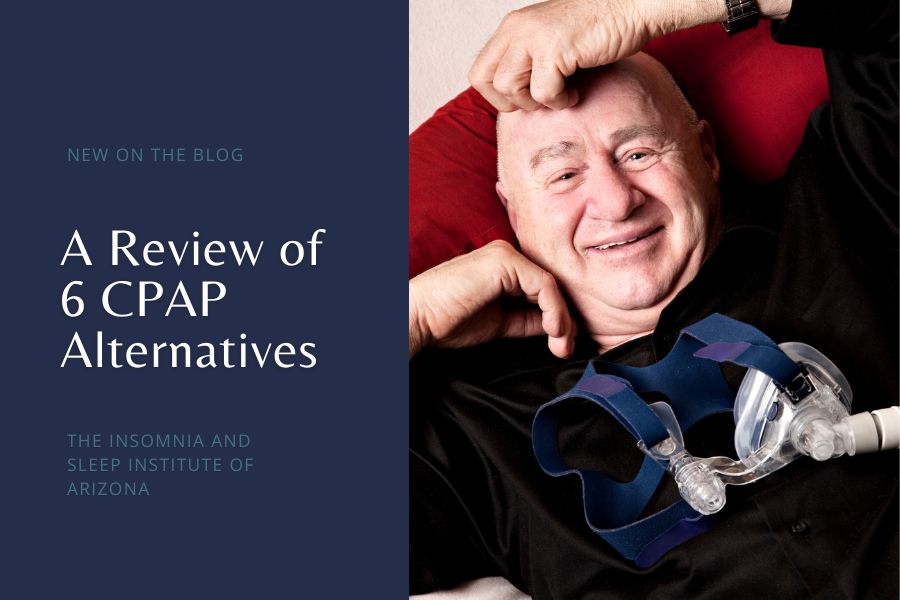There are many types of sleep disorders, and some have overlapping presentations. At The Insomnia and Sleep Institute of Arizona, we treat all sleep disorders including breathing disorders like obstructive sleep apnea (OSA) and parasomnia events. Dubbed the Face of Sleep Medicine in the Phoenix area, we are staffed by sleep specialists who concentrate in sleep medicine, and you work with an expert from your consultation onward to ensure a correct diagnosis followed by proper testing and treatment (if necessary). As an outcome-driven clinic, you can rest easy knowing that help for your sleep disturbance is available.
Catathrenia is a disorder that is currently being reclassified. For years, Catathrenia was considered a type of parasomnia, but know it is more often defined as a type of sleep disorder breathing pattern—most notably by the third edition of the International Classification of Sleep Disorders. Oftentimes, the patient’s bed partner points out the event because it is so unusual. Instead of more “typical” presentations of a breathing disorder (such as snoring), those with catathrenia often groan, emit a squeak, or moan.
Diagnosing Catathrenia and Other Sleep Disorders
For those who do not routinely share their bed with others, they might be completely unaware of their catathrenia. Unfortunately, how this disorder presents can be embarrassing for the person with catathrenia and uncomfortable for those who witness it. The groaning associated with catathrenia is regularly described as sexual (though erotic dreams are not necessarily occurring at the time). Catathrenia can occur in people of all ages, including children—so it is unsurprising to learn that it is especially embarrassing for children during a sleepover.
Catathrenia breathing patterns are also very different than those of snorers (regardless of the cause of the latter). Catathrenia involves a deep inhalation, a pause, and finally a slow exhale (where the noises occur). Contrarily, the noises associated with snoring occur during the inhalation stage. There have been acoustic analyses that showcase how snoring and catathrenia are very different, with the latter having a laryngeal origin while snoring is guttural. Even though catathrenia is relatively rare, there is a good chance it is under-reported given the fact that a bed mate usually has to let the person know about their nighttime noises. There is also the likelihood of catathrenia being mistaken for simple snoring, sleep apnea, or sleep talking.
Talking About Catathrenia
For those who think they, their bed mate, or their child might have catathrenia, the good news is that it is being discussed more openly. Right now, there is a Facebook group (Catathrenia) that has over 100 members. Researchers have connected with such groups with participants reporting on their family history, sleep history, how often they think these events occur, their history of CPAP usage, and other details. Such research shows that catathrenia is more common in males and can happen at any age.
Catathrenia can also happen during any sleep stage, but is most common during REM. Interestingly, many patients have a small jaw. Just 15 percent of those with catathrenia know that there is a family history of it (again, this may be underreported). Those who are more active in sports that require or lead to holding one’s breath (such as swimming) also appear to suffer from catathrenia more.
Treating Catathrenia
Unfortunately, research suggests that CPAP therapy does not seem to help those with catathrenia (though it remains the gold standard for treating OSA). This realization further cements the idea that catathrenia is in fact a sleep disorder breathing abnormality. Instead, research shows that cognitive-behavioral therapy (CBT-I), as well as pharmaceuticals, produce the best outcome for catathrenia patients. Researchers also recommend ear plugs for bed partners.
If you are struggling with disorder involving breathing, parasomnia events, or any issues related to getting the quantity and quality of sleep you need, help is available. There is no referral necessary to book your consultation with The Insomnia and Sleep Institute, making it easy to get support for sleep struggles. We treat patients as young as two years old and are committed to starting your journey with a correct diagnosis. To book your consultation at The Insomnia and Sleep Institute, simply fill out the online form or call the office today.








